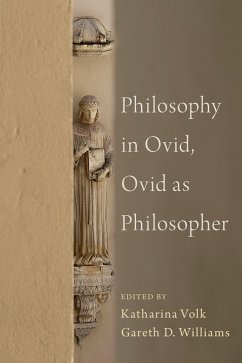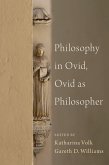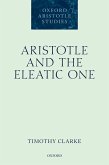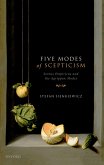Ovid has long been celebrated for the versatility of his poetic imagination, the diversity of his generic experimentation throughout his long career, and his intimate engagement with the Greco-Roman literary tradition that precedes him; but what of his engagement with the philosophical tradition? Ovid's close familiarity with philosophical ideas and with specific philosophical texts has long been recognized, perhaps most prominently in the Pythagorean, Platonic, Empedoclean, and Lucretian shades that have been seen to color his Metamorphoses. This philosophical component has often been perceived as a feature implicated in, and subordinate to, Ovid's larger literary agenda, both pre- and post-exilic; and because of the controlling influence conceded to that literary impulse, readings of the philosophical dimension have often focused on the perceived distortion, ironizing, or parodying of the philosophical sources and ideas on which Ovid draws, as if his literary orientation inevitably compromises or qualifies a "serious" philosophical commitment. Philosophy in Ovid, Ovid as Philosopher counters this tendency by considering Ovid's seriousness of engagement with, and his possible critique of, the philosophical writings that inform his works. The book also questions the feasibility of separating out the categories of the "philosophical" and the "literary" in the first place, and explores the ways in which Ovid may offer unusual, controversial, or provocative reactions to received philosophical ideas. Finally, it investigates the case to be made for viewing the Ovidian corpus not just as a body of writings that are often philosophically inflected, but also as texts that may themselves be read as philosophically adventurous and experimental. The essays collected in this volume are intended at the individual level to address in new ways many aspects of Ovid's recourse to philosophy across his corpus. Collectively, however, they are also designed to redress what, in general terms, remains a significant lacuna in Ovidian studies.
Dieser Download kann aus rechtlichen Gründen nur mit Rechnungsadresse in A, B, BG, CY, CZ, D, DK, EW, E, FIN, F, GR, HR, H, IRL, I, LT, L, LR, M, NL, PL, P, R, S, SLO, SK ausgeliefert werden.









